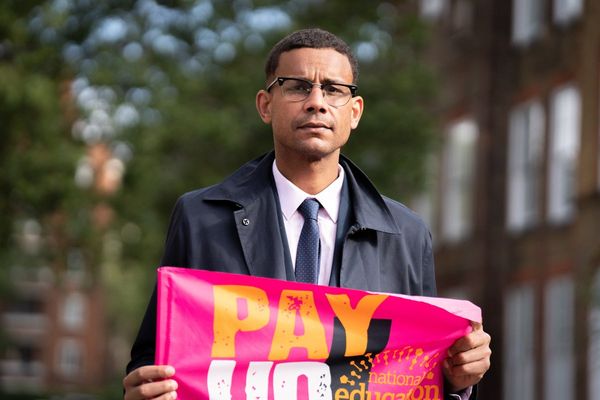
The Takeaway: Personal finance beginners should start with the basics of earning, saving, spending, investing, and insuring their assets.
There's a literacy problem in this country, and it goes beyond reading and writing.
The problem is financial literacy, or how to make smart decisions with money, and many Americans are lacking basic knowledge in this important area.
According to the 2023 TIAA Institute-GFLEC Personal Finance Index, U.S. adults correctly answered only 48% of the 28 basic money questions in an annual financial literacy survey.
DON'T MISS: How to Budget Your Money
This figure has hovered around the 50% mark since the inaugural 2017 survey. However, the share of respondents who cannot correctly answer even seven of the questions has increased to one in four.
The report found that people with a low level of financial literacy are more than four times as likely to have difficulty making ends meet in a typical month.
They are also nearly three times as likely to be constrained by debt; three times more likely to be financially fragile; and more than four times as likely to lack emergency savings sufficient to cover one month of living expenses.
In addition, employed adults with very low financial literacy were more than four times as likely to stop saving for retirement in 2022 because of inflation’s impact on their finances.
It's no wonder so many people's financial foundations are rocky. Most haven't had the benefit of learning about personal finance in school or at home. They're on their own when it comes to lessons on debt management, investing, and planning for the future.
Next Gen Personal Finance, a nonprofit that advocates for financial literacy in schools, said that momentum is growing each year for states to guarantee a standalone personal finance course for all high schoolers.
The group said 22 states currently require some form of personal finance education, up from six states in 2019.
Fortunately, you can take matters into your own hands. The basics of personal finance aren’t all that complicated. It’s about taking stock of what you have and where you want to go -- and seeking help when you need it.
If you can pay attention to these areas of your financial life, you’re off to a great start.
The 5 Basics of Personal Finance
In order to be financially literate, you should become familiar with five basic concepts.
1. Earn: Before you do anything with your money, it's vitally important to know how much you're bringing in. This includes money earned from a steady paycheck, self-employment income, or a side hustle.
2. Spend: You also need to know how much of your income is going out the door for fixed expenses like housing and healthcare and variable costs like entertainment and food. You want to make certain you're spending less than you're earning and accounting for non-negotiable expenses like taxes. A budget, or a more flexible spending plan, will allow you to allocate your income and determine the best way to spend your money.
3. Save: Author Frank Sonnenberg said, "Save when you don't need it and it'll be there when you do." This includes saving for emergencies, short-term goals, such as vacations, mid-term goals like buying a car, and -- the big one -- retirement. How much of your income you should be saving depends on your current lifestyle and your goals.
Compare the Best Savings Rates
View the original article to see embedded media.
4. Invest: It's time to put money you set aside for mid-term and long-term goals to work. Stocks offer investors the greatest growth potential over the long haul, according to the Securities and Exchange Commission. Bonds are relatively safe and they can offset exposure to more volatile stock holdings. Other types of investments include real estate, mutual funds, and cryptocurrency.
5. Protect: Don’t forget to protect your assets with insurance. Homeowners or renters insurance will cover your home and belongings in the event of loss or theft. Auto insurance will protect you from paying the full cost for vehicle repairs and medical expenses due to a collision. Life insurance pays a beneficiary that you select a set amount of money if or when you die.
How to Start Learning About Personal Finance
You may want to take additional steps to improve your financial literacy. Here are some resources to consider:
- Talk to a professional: Certified Financial Planners (CFPs) have a fiduciary responsibility, meaning they have to act in the best interests of their clients. They can help you take stock of your income and debts, and make a plan to achieve specific goals.
- Try a robo-advisor: For low-cost access to investing advice, try a robo-advisor. These online platforms provide digital financial advice and investment recommendations based on mathematical rules or algorithms, which are designed by financial advisors, investment managers, and data scientists.
- Take an online course: There are a number of free financial literacy courses available online that are taught by vetted professionals.
- Pick up a book: There’s no shortage of personal finance books that cover such topics as stock trading, paying off debt, and planning for retirement.







